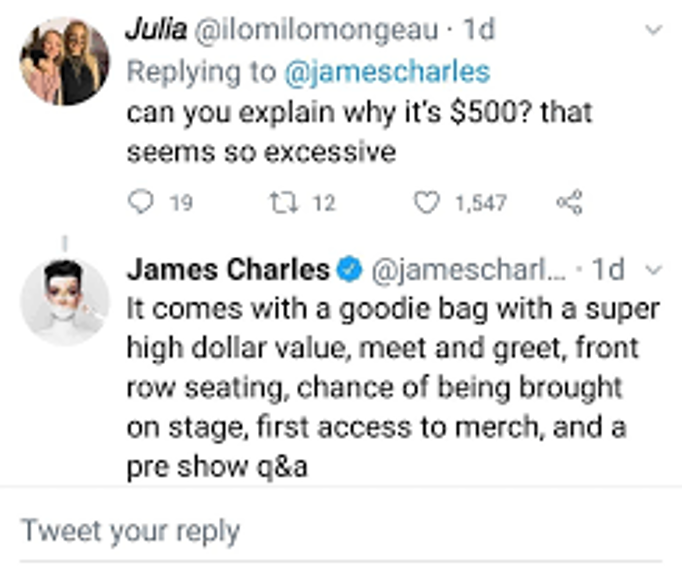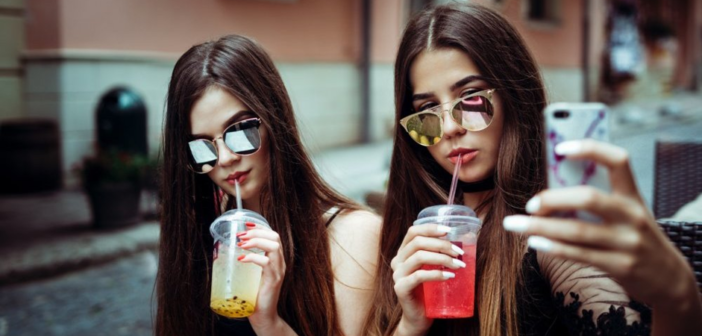By: Pleshae McPhee, Contributing Writer
Influencer. Influenza. There is no coincidence that these words sound the same. With the advancement of technology, online cultural change has become a subtle virus infecting the backbone of society, and sadly, consumerism is not immune.
The popularization of social media has brought about using it to promote the products and services of international businesses by posting content on various platforms, namely Instagram.
At the forefront are “influencers” which are individuals who are usually well-established in their industries who have a large social media following and can thus persuade their audience by way of virtue and reach.
The ability of these individuals to engage a large audience poses positively to the pockets of international companies, which is why they are being enlisted to drive the marketing endeavors and campaigns for many businesses today. However, under the surface, influencer culture is really a disease, and for the first time in a long time: it costs to be viral.
Social media has drifted from its initial intent, to connect people globally, to being rooted entirely on the perception of perfection. This perception of perfection is promoted through the pressures of influencers who have taken that concept and augmented it. The very fact that validation is glorified through likes and comments and that society has made a step further to coin not only a term to describe that glorification, but a profession centered around it, shows just how much the concept of reality has been distorted.
Influencers’ jobs are not to influence people to have an already pre-existing average life that most live, but rather to strive for a life beyond that through the promotion of digitally enhanced images and curated narratives being presented as authentic. Influencer culture drives a perfect sense of life and is furthering the kind of behavior that has taken a toll on people’s psychological well-being. A study called “Social media use and anxiety in emerging adults” in the “Journal of Affective Disorders: Volume 207” states that social media usage was significantly associated with dispositional anxiety symptoms as there is a constant need for perfection driven by the pressures of influencers. 
Influencers are the catalysts of the modern-day standard of gaining the most attention and likes and presenting the idea that popularity can be obtained by sharing one’s lifestyles and personalities. However, what is omitted from this tale is that it is mostly inauthentic but masked to be real. It has become a social epidemic.
Furthermore, there is a form of emotional vulnerability that is manipulated as influencers emerge and become idolized by their followers. As opposed to paid actors that consumers barely interact with, or a company that sells a product, influencers seem more within reach because they were once average human beings. In a way, they still are. It is through their connections, online presence, and humanness that makes others always feel that they have a relationship with influencers. The dangers of that are that it can be manipulated and used in favor of marketing a product.
For example, famous make-up artist, YouTuber, and influencer James Charles was questioned by a fan on why ticket prices for an event were $500 and he explained that they included various chances of meeting him, merchandise, and a Q&A session.
While this may seem like a plausible way that influencers like Charles can make their money, this is a clear-cut case of capitalization and exploitation. Influencers are often very interactive with their followers. Still, in reality, this is just a part of their job to maintain a faux relationship. Therefore, when it is time to sell a product, promote a code, or have a basic human interaction, they have already tapped into emotional appeal and vulnerability within their followers and can then use this to sell and monetize anything that they want down to a basic conversation. Connecting with followers is not a problem. It is when influencers use the same tone as a close friend as a guise to make it seem that there is a genuine relationship, but really, it is strictly business, and friendships are nothing but a promo code. 
Influencer culture has also brought upon the extraction of talent and hard work. In the early 2000s, marketing campaigns like Nike’s enlisted the help of celebrities such as Lebron James or Michael Jordan because they are successful athletes and must be honored for their great athletics. Furthermore, stars such as Gwenyth Paltrow signed endorsement deals with Estee Lauder, as did Penelope Cruz with L’Oreal. This marketing was based on credible companies and celebrities with actual careers. Influencer culture has brought upon the concept that to secure branding deals, one must solely garner a following and engage people rather than have talent itself. Some may say that influencing can be regarded as a talent, but it can also be dangerous.
Anyone can become an influencer, and anyone can influence anyone and anything without having any connection to it. This is seen through the endorsement of FitTea, a controversial slimming tea that has gotten backlash due to its promotion of unhealthy weight-reducing techniques, but due to the endorsement of it by credible influencers such as Kylie Jenner, the product can still be marketed to an impressionable audience.
The only vaccination for this social epidemic is to know that social media is the groundwork for a distortion of reality; therefore, it should not be used as a tool for comparison to actual, everyday lives. Influencers are merely brand images that are manufactured and crafted and are nowhere near the concept of reality. Influencer culture has become something detrimental to society, and now consumers must work to dismantle and reclaim the idea of authenticity in their ordinary lives. However, seeing the major cultural shift makes seem impossible to revert.





